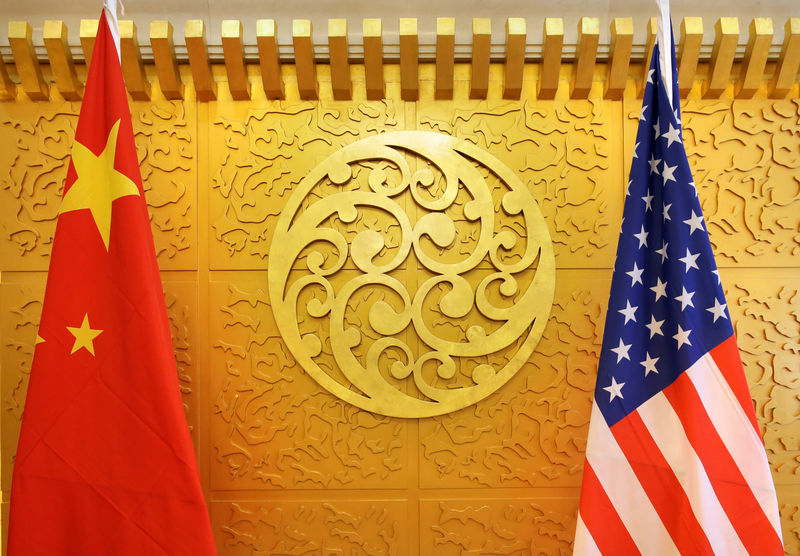Investing.com - Here are the top five things you need to know in financial markets on Monday, August 26:
1. U.S. futures jump as Trump signals further trade talk
Dow futures jumped triple digits on Monday, while European shares pared losses (London’s stock exchange was closed for a bank holiday) after U.S. President Donald Trump said that China is ready to come back to the negotiating table.
Trump told reporters at the G7 summit in France that the two countries had spoken overnight via phone and planned to get back to serious trade talks.
Although the Chinese Foreign Ministry said it was not aware of those weekend phone calls, Beijing’s top trade negotiator, Vice Premier Liu He, said he was firmly opposed to further escalation and wished to solve the issues through “consultation and cooperation with a calm attitude."
China and Trump had both announced new tariff measures on Friday and the White House confirmed Sunday that the president wished he had raised tariffs even further.
Trump clarified over the weekend that he did not currently plan to order U.S. companies to leave China after tweeting Friday that they should look for “an alternative”.
Markets will be on the lookout for further comments at a joint press conference with Trump and French President Emmanuel Macron scheduled for after the end of the G7 summit at 9:30 AM ET (13:30 GMT).
Read more: 3 Large Caps In The Line of Fire As The U.S.-China Trade War Intensifies - Haris Anwar
2. 10-year Treasury yield falls to lowest since 2016 as 2Y/10Y curve stays inverted
Safe-haven demand sent U.S. bond yields tumbling as investors looked for protection in the absence of Chinese confirmation of Trump's claims.
The yield on the U.S. 10-year Treasury sank to 1.45%, its lowest level since July 2016, while eyes remained on the spread with 2-year note whose yield remained above the 10-year.
The inversion of the 2-year/10-year yield curve is widely watched as a potential signal of oncoming recession.
3. U.S.-Japan trade deal dials down tensions
Trump and Japanese Prime Minister Shinzo Abe announced Sunday that they have agreed in principle to a trade deal that would reduce Japanese tariffs on American beef, pork and other agricultural products, while delaying at least temporarily the threat of additional U.S. tariffs on Japanese autos.
Trump also said Japan would purchase large quantities of U.S. wheat and corn.
Japan’s Chief Cabinet Secretary Yoshihide Suga denied that his country had given too many concessions and said the broad agreement was “very valuable”.
Abe said more work remained to close the deal, but expressed optimism that it could be finished by the time of the United Nations General Assembly next month.
4. U.S. durable goods orders expected to slow down
On the U.S. data front, traders will look to durable goods orders for July at 8:30 AM ET (12:30 GMT) for insight into U.S. manufacturing activity and capital spending.
Non-defense capital goods orders excluding aircraft and parts, a commonly used indicator proxy for business spending, are forecast to have dipped 0.1% as ongoing tensions from the Sino-U.S. trade dispute weighed.
The July data will likely overshadow revised numbers on U.S. gross domestic product for the second quarter due on Thursday.
5. German business morale hits 7-year low
German business confidence dropped more than expected to hit its lowest level since November 2012.
Analysts said the data was a further sign of damage to the euro zone’s largest economy from escalating trade conflicts.
German exporters face rising pressure from Trump’s trade policies and also remain bogged in uncertainty over the U.K.’s upcoming departure from the European Union.
The German economy contracted 0.1% in the April-June period due to a plunge in exports and the country's central bank has said it expects a further contraction in the current quarter, meeting the technical definition of a recession.
-- Reuters contributed to this report.
